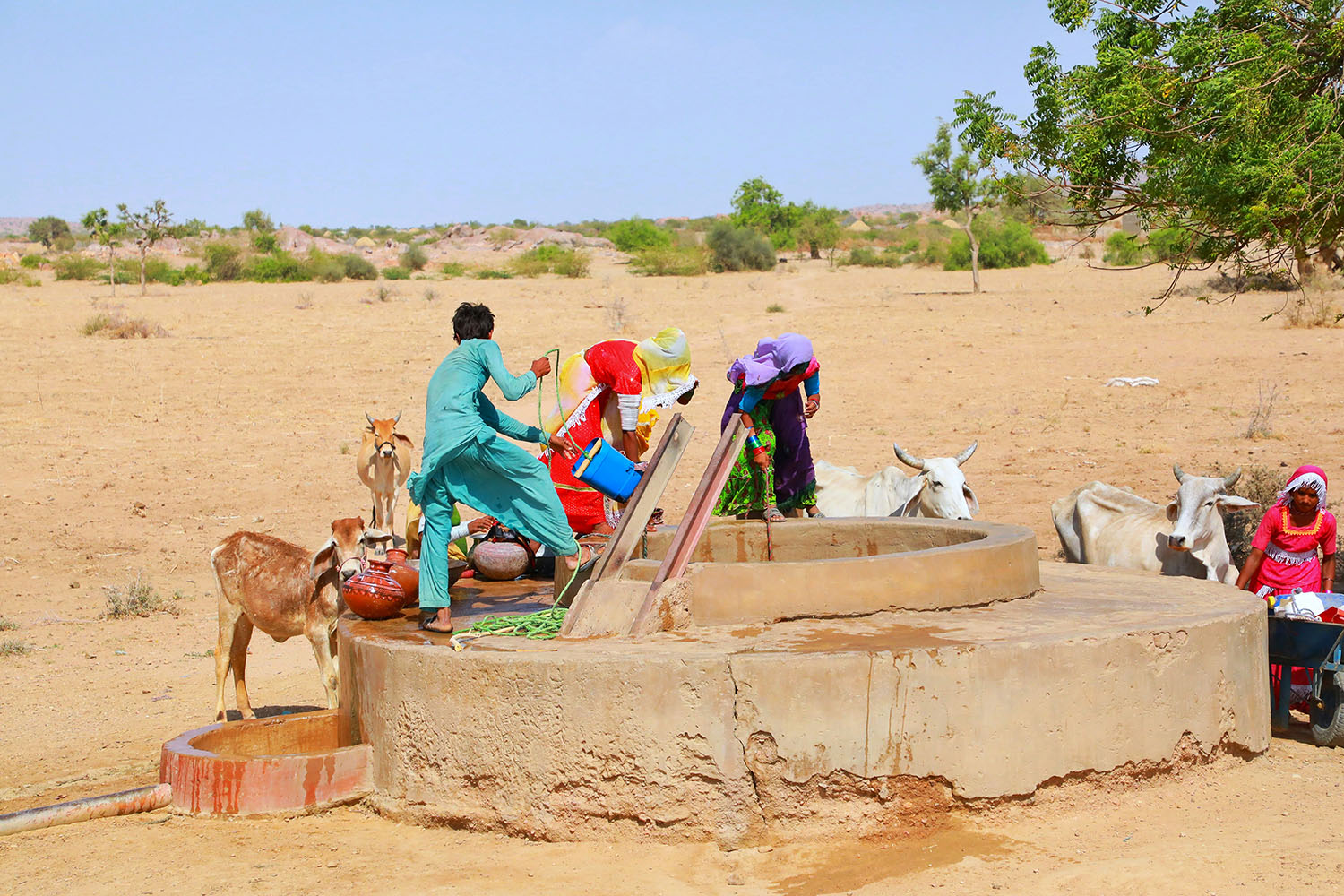Groundwater and soil salinisation are major issues in the Indo-Gangetic plain, reducing the productivity of agriculture and affecting other water users. This case study aimed to provide a review of groundwater salinity issues, drawing on existing studies (mainly in Pakistan) to suggest the different controlling mechanisms and discuss the different strategies used to mitigate them.

Collecting water from a well in Tharparkar, Pakistan. © Muneer Ahmed via Unsplash.
There are many diverse sources of salinity information such as maps, reports, papers and databases available in the Indo-Gangetic plain relating to the issues of saline groundwater. The data sources are often of varying ages and quality, so creating a coherent story between them is complex.
Key objectives
The specific objectives of the study were to:
- collate and review the major salinity studies in Pakistan
- summarise and systemise the findings for the review
- produce an overview report synthesising the salinity issues, mechanisms and management in Pakistan
Activities
We collated and reviewed several hundred reports and maps on salinity in Pakistan. The data review highlighted the complex various processes leading to groundwater salinity in Pakistan, including:
- waterlogging and evaporation
- washing in irrigation salt residue
- slow recharge, leading to saline recharge
- historical connate saline water
- natural salinity from halite (salt) in the sediments
- saline intrusion from the sea
Project partners
This case study involves researchers from BGS, GW-MATE (now the Global Water Partnership) and MetaMeta.
Contact
Please contact Alan MacDonald for further information.

